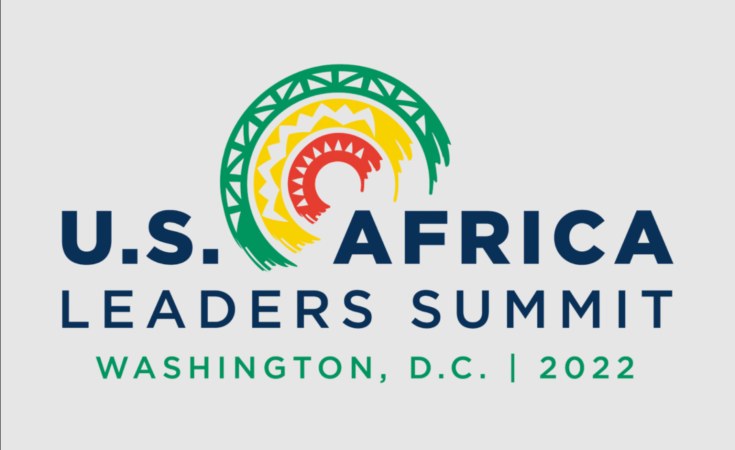As African leaders and their hand-picked delegations are packing their luggage to fly to Washington, D.C., it is important to emphasize that US officials are fully aware that African aspirations should be the primary focus of the second US-Africa Leaders Summit - and not African leaders who have a different (and quite personal) agenda from their people. This is based on the research made by independent democratic scholars and institutions (V-Dem and IDEA being only two of them).
"Diplomacy is part science and part art. Alliances are made, deals are cut, conflicts are left unresolved and civil rights are either promoted or trampled. Diplomacy is conducted under the idea that bringing disparate peoples together and negotiating differences can maintain stable and sometimes peaceful relationships between nations - but at what cost and who decides who is coming to dinner and who is not? Where US diplomacy toward Africa is concerned, one can certainly wonder how the art is conjured, who is stirring the pot and who decides that some dictators and certain autocrats come to the White House, and some don't," asked Benin's former Minister of Justice, Reckya Madougou, in an open letter.
According to the White House, the US will work with their African partners "to support democratic institutions and civil societies in Africa and to enhance accountability and the delivery of basic services". However, when one looks at the guest list for the summit, legitimacy is still being given to certain autocrats, human and civil rights abusers, as media and social media perpetrators.
A question often asked since the launch of the Arab Spring in January 2011 is what effect will popular protests have on democracy in the rest of Africa. Frequently overlooked in this discussion is that Sub-Saharan Africa has been experiencing its own democratic surge during this time with important advances in Guinea, Ivory Coast, Niger, Nigeria, and Zambia, among other countries. This progress builds on nearly two decades of democratic institutions setting up on the continent (which was slowed down recently due to the pandemic). Even so, the legacy of "big-man" politics continues to cast a long shadow over Africa's governance norms. Regime models on the continent, moreover, remain highly varied, ranging from hardcore autocrats, to semi-authoritarians, democratizers, and a select number of democracies (Mauritius is no longer in the latter group).
Recognising these complex and still fluid crosscurrents, democratic embarked on an analysis of the linkages between the Arab Spring and African democracy - with an eye on the implications for governance norms on the continent over the 2030 horizon.
A key finding from several reports is that the effects of the Arab Spring on Africa must be understood in the much larger and longer term context of Africa's democratic evolution. While highly varied and at different stages of progress, democracy in Sub-Saharan Africa is not starting from scratch, unlike in most of the Arab world. Considered from this broader and more heterogeneous perspective, the direct effects of the Arab Spring on Sub-Saharan Africa's democratic development are muted. There are few linear relationships linking events in North Africa to specific shifts in democratization on the continent. That said, the angst and frustration propelling the protests and unfolding transitions in the Arab world, particularly in Egypt and Tunisia, resonate deeply with many Africans who are also facing global inflation and recession, as well as bad governance.
The Arab Spring has thus served as a trigger, rather than a driver, for further democratic reforms in the region. There have been protests in more than a dozen African capitals demanding greater political pluralism, transparency, and accountability following the launch of the Arab Spring. Some have even explicitly referenced North Africa as a model. Likewise, a number of African governments are so fearful of the Arab Spring's influence that they have banned mention of the term on the Internet or public media.
The democratic protests in North Africa, consequently, are still having an impact and shaping the debate on the future of democracy in Africa. They are also teaching important lessons that democracy is not bestowed on but earned by its citizens. Once initiated, it is not a passive or self-perpetuating governance model, but one that requires the active engagement of citizens. Perhaps most meaningfully, then, the Arab Spring is instigating changes in expectations that African citizens have of their governments. In Mauritius, Nishal Joyram frequently refers to Tarek elTayeb Mohamed Bouazizi, the street vendor who set himself on fire on December 17, 2010 in Tunisia - which became a catalyst for the Arab Spring against autocratic regimes.
*Based on data from Polity IV and Freedom House, important features of democracy, such as multipartyism, respect for civil liberties, independent media, and periodic elections, in fact do not allow genuine contestations of power. In other words, they wish to garner the reputational benefits of democracy without commitments to shared power, representation, and equality under the law. Such quasi-authoritarians comprise a fifth of African regimes. These cases pose illuminating tests as to whether still democratic institutions, like Electoral Supervisory Commissions, can withstand the pressure of powerful individual politicians seeking to perpetuate their influence by undermining checks and balances on executive authority.
In Washington, D.C., many semi-authoritarian leaders who do not want to adopt genuine democratic practices, or to facilitate smooth transitions from power, with proper electoral reforms, will be smiling for the group picture.
Those leaders who tend to stay too long are likely to depart on terms considerably less favourable to themselves, n'est-ce pas ?


